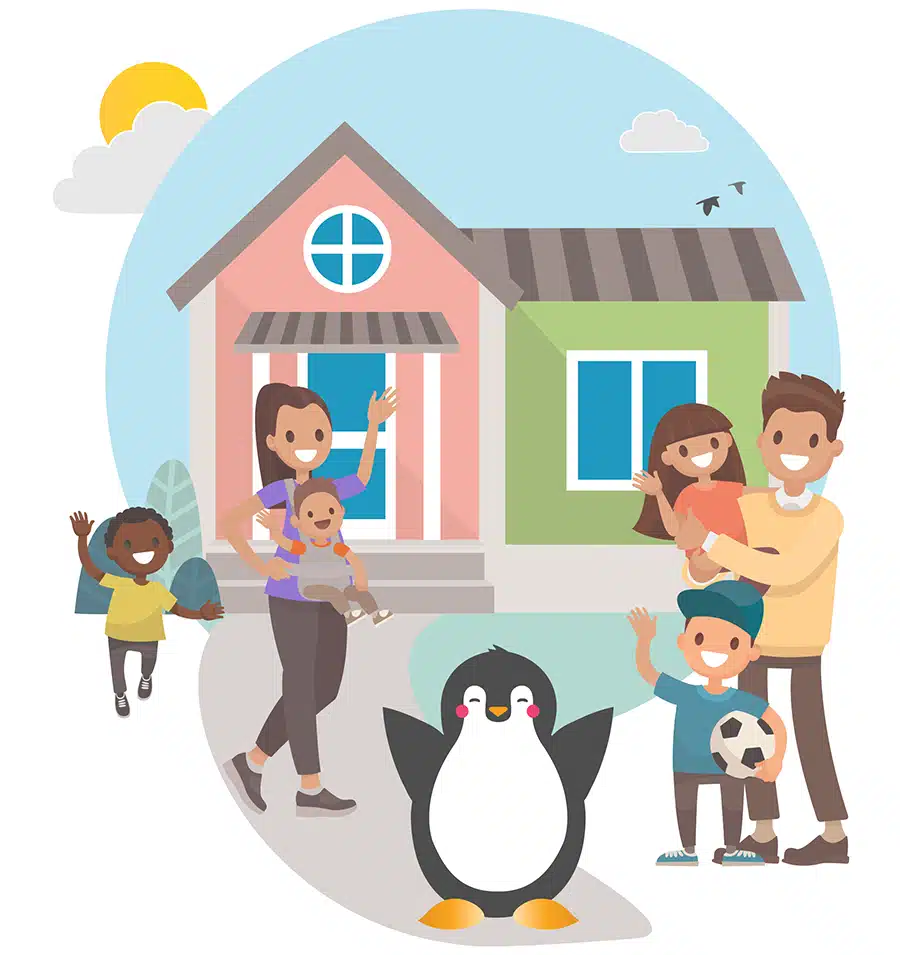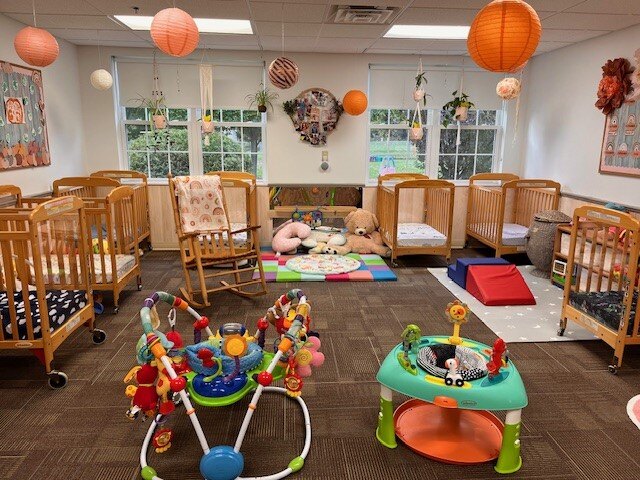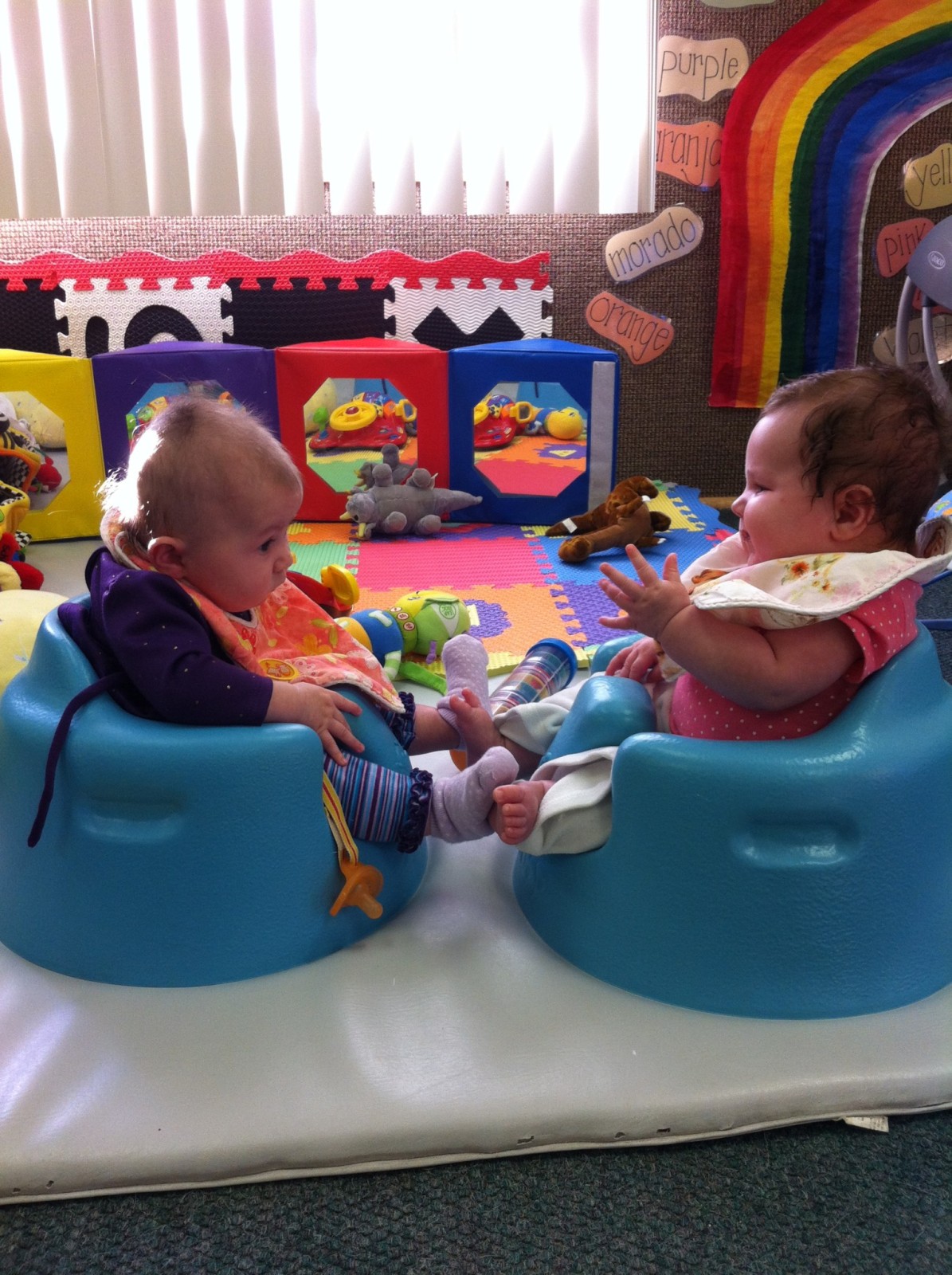Top Protective Measures That Make Daycare North York Highly Recommended
Wiki Article
The Duty of Day Care in Fostering Social Skills and Very Early Understanding
Childcare works as a considerable environment for children, facilitating important social communications that promote very early understanding. In this structured setup, kids involve with caretakers and peers, creating vital communication and cooperation abilities. As they navigate play and numerous tasks, they find out to solve conflicts and construct psychological knowledge. Comprehending the subtleties of these interactions discloses the profound influence childcare has on a kid's advancement, shaping their future partnerships and scholastic preparedness. What particular skills do kids get in this setting?The Importance of Social Communication in Day Care
While many moms and dads recognize the relevance of very early childhood education, the function of social interaction in daycare is usually taken too lightly. Day care settings supply kids with invaluable possibilities to engage with peers, fostering important social skills. During these developmental years, children discover to browse different social dynamics, such as sharing, teamwork, and problem resolution. Interacting with diverse age and individualities enhances their ability to adjust to various settings and create empathy in the direction of others.
Structure Communication Abilities Via Play
Play works as an effective tool for kids to develop vital interaction skills in day care settings. Through numerous play activities, youngsters engage in conversations, share their ideas, and learn to pay attention to others. Role-playing games, as an example, motivate them to make use of language in different contexts, promoting vocabulary development and understanding of social cues.
Storytelling during playtime permits kids to convey concepts and feelings, assisting them establish narrative skills and confidence in their verbal expressions. In general, play not only works as an enjoyable leisure activity however also as an essential platform for creating the communication skills necessary for effective social communications in later life.
Urging Participation and Teamwork
Cooperation and teamwork are essential abilities that kids can grow in childcare environments. With various group activities, such as building projects or collective games, youngsters discover to share obligations and pursue usual goals. These communications cultivate an understanding of the significance of paying attention to others, working out functions, and endangering when necessary.In day care setups, caregivers often produce chances for children to take part in team effort by motivating them to join group tasks. This not only aids kids create social bonds yet additionally cultivates a sense of belonging and neighborhood.
As they browse these cooperative experiences, children get beneficial understandings into the dynamics of dealing with peers. They find out to value varied perspectives and identify that each member adds uniquely to the team effort. Eventually, these very early lessons in cooperation and teamwork prepared for much healthier connections and reliable cooperation in future social and scholastic setups.
Structured Discovering Activities and Cognitive Development
Structured learning tasks play an indispensable role in cultivating cognitive development in little ones (Childcare North York). These activities, that include puzzles, storytelling, and hands-on experiments, stimulate critical thinking and problem-solving skills. In a daycare setting, structured learning motivates children to involve with their peers, enhancing their capability to procedure information and comprehend numerous principles
Via assisted play and interactive jobs, kids create foundational skills such as numeracy and proficiency. Activities focused around numbers can aid youngsters comprehend mathematical principles, while narration improves language purchase and comprehension. Additionally, organized discovering enables instructors to examine developmental development and dressmaker activities to individual learning demands.

Integrating a diverse range of structured activities not only promotes cognitive development yet likewise prepares children for future scholastic success. By offering a well balanced setting that promotes exploration and questions, daycare programs play a crucial function in shaping the cognitive capacities of young students.
Promoting Emotional Intelligence and Confidence
Emotional intelligence and confidence are essential elements of a youngster's growth, enhancing the cognitive abilities promoted with structured knowing activities. In day care settings, children are offered with chances to reveal their emotions and engage in social communications, which are important for building psychological understanding. With guided play and group tasks, children find out to identify their sensations, identify those of others, and establish compassion.Interaction with peers and caretakers helps to grow self-worth and resilience. Favorable support and motivation from adults encourage kids to take dangers and face difficulties, promoting a sense of achievement. As they navigate social characteristics, youngsters develop self-confidence in their capacities to communicate, team up, and settle problems - Childcare Near Me. This caring atmosphere permits the steady advancement of psychological intelligence, which is essential for future social relationships and overall wellness. Therefore, day care plays a considerable function in fostering both emotional knowledge and self-confidence in young kids
Frequently Asked Concerns
Just How Can Parents Select the Right Daycare for Their Kid?
Parents ought to think about elements such as place, team qualifications, safety criteria, curriculum, and evaluates from other parents when picking the right daycare for their kid, guaranteeing it lines up with their youngster's developing demands and family members worths.
What Age Is Ideal for Beginning Daycare?

Just How Does Daycare Influence Children's Habits in the house?
Day care frequently positively influences kids's actions at home by enhancing social abilities, promoting self-reliance, and encouraging emotional law Childcare Near Me (Child Care Center). Therefore, children may show better communication and participation, causing even more unified family dynamicsExist Any Kind Of Downsides to Day Care Participation?
Yes, there are disadvantages to daycare attendance, including possible separation anxiousness, direct exposure to illnesses, and inconsistent caregiving. These variables can affect a kid's emotional wellness and change at home, affecting general household dynamics.Just How Can Moms And Dads Assistance Social Abilities Discovered at Daycare?
Moms and dads can sustain social abilities found out at day care by facilitating playdates, encouraging participating tasks, modeling positive interactions, discussing feelings, and strengthening sharing and communication at home, thus improving their kid's social development and confidence.Childcare offers as a substantial setting for young kids, promoting important social interactions that advertise early knowing. Daycare settings give kids with very useful chances to engage with peers, fostering crucial social skills. Play serves as an effective medium for youngsters to develop essential communication abilities in day care setups. In daycare setups, kids are offered with chances to express their emotions and engage in social interactions, which are essential for developing emotional awareness. Childcare often favorably affects children's habits at home by enhancing social skills, promoting independence, and motivating emotional guideline.
Report this wiki page